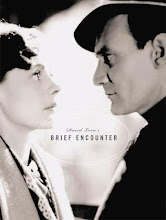This is probably the deepest study of Christianity that I have come across in a film. Bresson is more general, and more at easy and convinced of his faith and his thoughts but Bergman deals with a problem and he does a great deal presenting the problem. Winter light, part of the trilogy of faith, with Through a glass darkly and Silence. This is Bergman’s favourite film, may be because of the amazing incisiveness with which he deals with his subject.
The film rotates around Tomas Errikson played by Gunnar Björnstrand, a pastor in a small town who is no longer sure of his faith, and hence doesn’t have all the answers, yet he conducts regular sermons mechanically failing to give advice which could have prevented his parishioner’s death [Max von Sydow]. Then there is the odd and atheistic Marta [Ingrid Thulin] and Gunnel Lindblom. I loved Gunnel Lindblom in the film. She is so subtle and natural and modest and inconspicuous, even with her baby. Ingrid Thulin is good, but Lindblom is simply the best. She handles with traditional ease and maternal anxiety simultaneously her husband’s crisis and his consequent death. These are separate elements in the story, yet inside church everyone serves a symbolic function; especially the crooked sexton and the cynical organ player serve only to heighten the crisis which is partially resolved in the end.
Sven Nykvist’s cinematography. Alternately making the cast look two dimensional by focusing on their figures through out the movie and not as part of a larger background, it undercuts their insignificance and emphatically state that this is not a movie about men or women. It is about god, and what the different men and women in the church view him as. Nykvist also makes the winter permeate every scene, ensconcing the viewer in a pre-emptive quest which can end only with more agony.
I do not know. Perhaps being irreligious has got something to do with the movie. Bergman himself was an atheist, and many atheistic friends have been moved by the film. I cannot tell if the portrait of a crumbling church and the dwindling faith of the past can provide succour to the faithless but I think it’s got more to do with the ending of the film than with the bleakness and wintry misery. The ending is not a regular denouement, for the pastor prepares to conduct the mass mechanically even after the scene of faith with the sexton, and after knowing that only Marta came for it. Yet I am not sure if the doubts and points raised by the misguided sexton-who began reading the bible to go to sleep-should be pinned down as the ideological crux of the film. I’d also hate to see it as a simple case of thesis, antithesis and synthesis: the pastor’s lack of faith, Jonas’ confirmation of it and in the end, a rejection of it through an answer about silence, how the son of god had to bear it as well. Here I feel that Jonas’ confirmation would have been the synthesis technically-with the answer of suicide to an excruciatingly empty life on earth. But that is not what the film says in the end; it advocates nothing but it clearly rejects paths set by Marta or the organ player or even the sexton.
I think perhaps this movie leaves such a powerful impression among atheists, is because the film is predominantly individuals though of course foreshadowed by the church as a whole. And I think it is herein that we find the answer to the film. Nothing in the movie can be seen as answer to the question of doubt of faith. When the sexton elaborates on Jesus’ suffering as spiritual and emotional and not physical, first being forsaken by his own friends and disciples and then by his father; we are here presented with a revolutionary idea. Here, emphasizing on the man of Jesus, Bergman resists the viewer’s impulse to register his suffering at par with him because he is a separate individual from whom we may learn not imitate. This discussion of god’s silence thereby identifies the problem- it is up to every person to individually find answers that may placate him.
Friday, May 28
Subscribe to:
Post Comments (Atom)





No comments:
Post a Comment